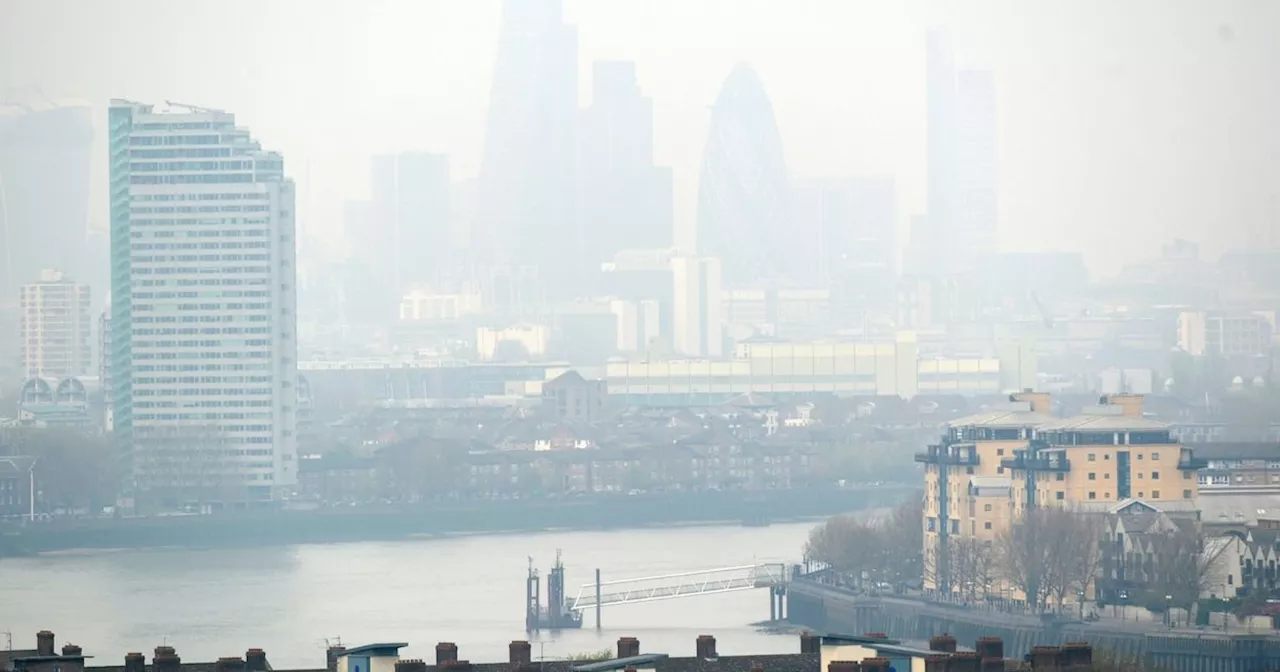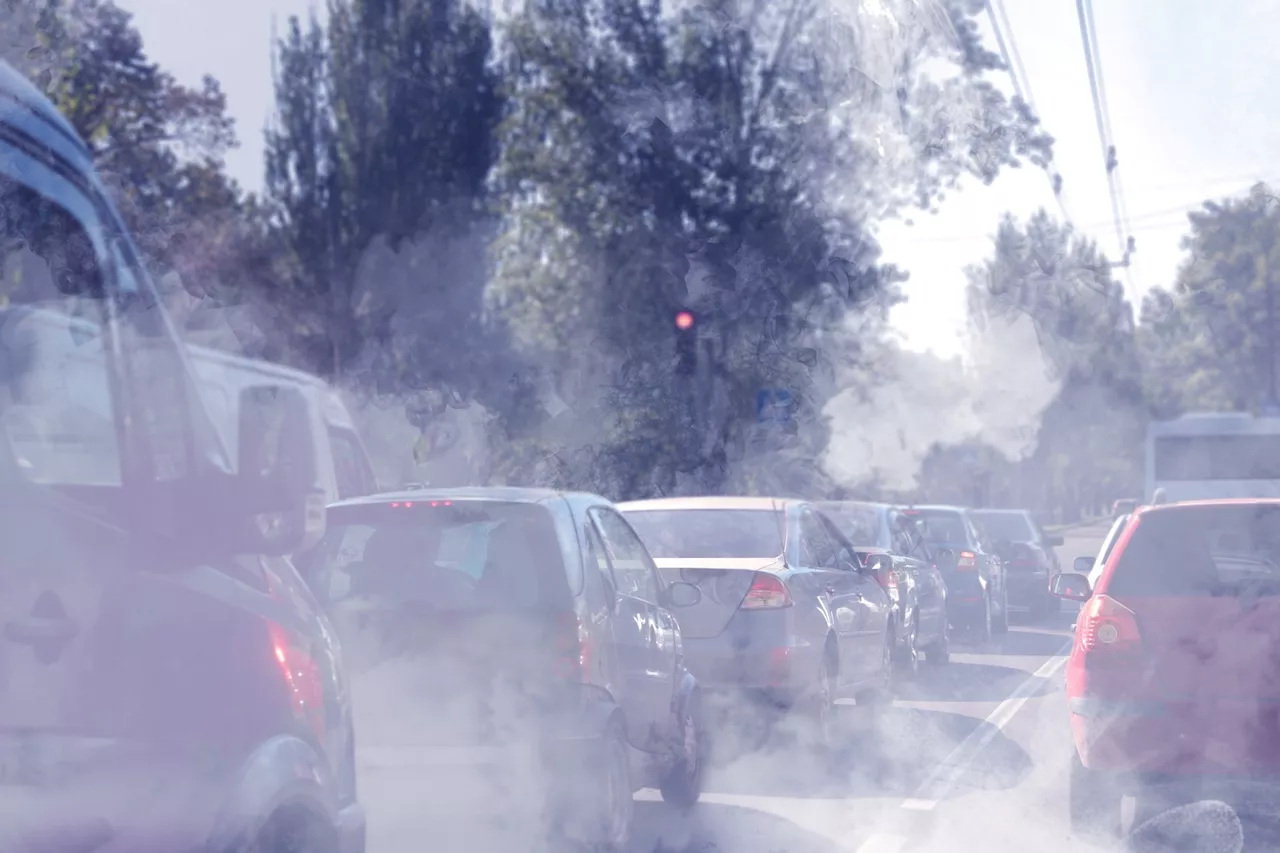A study from the University at Buffalo reveals a concerning link between air pollution exposure during pregnancy and the risk of neonatal intensive care unit (NICU) admissions. The study, published in Scientific Reports, analyzed satellite-derived air pollution data and NICU admission records, finding that higher levels of nitrogen dioxide (NO2) and PM2.5 during the last month of pregnancy were associated with a significantly increased risk of NICU admission for newborns.
Air pollution, stemming from sources such as vehicle emissions, wildfires, and industrial activities, poses a significant health risk to many individuals. Pregnant individuals are particularly vulnerable to the detrimental effects of air pollutants on fetal development, especially during the final month of pregnancy.
A recent study conducted by the University at Buffalo sheds light on the impact of air pollution on neonatal health by analyzing data from neonatal intensive care units (NICUs) and satellite-based air pollution measurements. The researchers focused on common air pollutants, including nitrogen dioxide (NO2), primarily generated by the combustion of fossil fuels in vehicles, power plants, and industrial processes; PM2.5, fine inhalable particles with diameters of 2.5 micrometers or less; and ozone (O3), a secondary pollutant formed from oxygen and other gases in the presence of sunlight. Published in the journal Scientific Reports, the findings reveal that newborns exposed to higher levels of NO2 during the last month of pregnancy have a 30-35% increased risk of NICU admission and an 11-22% higher risk associated with PM2.5 exposure. These results emphasize the critical impact of air pollution on fetal development during this vulnerable period and underscore the importance of mitigating air pollution exposure, even at relatively low levels. While the study does not establish a direct causal relationship, it provides compelling evidence to support local and national initiatives aimed at reducing air pollution and improving air quality. By minimizing exposure to harmful pollutants, these efforts could potentially benefit pregnant women and reduce associated neonatal health risks.Despite advancements in maternal and child health care, NICU admissions remain a significant concern in the United States, with 8.1% of infants admitted in 2018, the year on which this study focused. Although the U.S. generally has lower air pollution levels compared to other countries, the impact of air pollution on NICU admissions remains an understudied area. The study's design, utilizing satellite-derived data, allows for a more comprehensive assessment of air pollution exposure across the United States, including areas with limited ground-based monitoring, such as rural regions. The research team analyzed data by geographical regions, revealing variations in the association between air pollution exposure and NICU admissions. For instance, the Great Plains region showed a lower risk of NICU admissions, potentially due to infants in more rural areas being transferred to NICUs only for severe complications due to limited access to such units. Regarding pollutants and geographical variations, the strongest risks were observed with NO2, followed by intermediate risks with PM2.5. Ozone results were more complex, showing either a protective effect or no significant difference in some groups, except during the summer months. Geographically, the Midwest and Mid-Atlantic regions had the highest odds of NICU admission associated with NO2 exposure. Seasonal variations were noted for PM2.5, with persistent risks along the West Coast and in the Southeast, particularly during the summer. In contrast, winter risks were highest in the Northeast
AIR POLLUTION PREGNANCY NEONATAL HEALTH NICU ADMISSIONS ENVIRONMENTAL HEALTH PUBLIC HEALTH
United Kingdom Latest News, United Kingdom Headlines
Similar News:You can also read news stories similar to this one that we have collected from other news sources.
 Study reveals health and economic impact of air pollution in aging societiesAir pollution is a growing health issue worldwide, and its impacts are often underestimated in aging societies like Japan.
Study reveals health and economic impact of air pollution in aging societiesAir pollution is a growing health issue worldwide, and its impacts are often underestimated in aging societies like Japan.
Read more »
 Air pollution clouds the mind and destroys focus, scientists revealAn alarming new study reveals how air pollution could be messing with our brains
Air pollution clouds the mind and destroys focus, scientists revealAn alarming new study reveals how air pollution could be messing with our brains
Read more »
 Air pollution amplifies dementia risk in cardiometabolic disease patientsCMD patients face a 2x higher risk of dementia and MCI, but healthier lifestyles can counter air pollution's impact and reduce these risks.
Air pollution amplifies dementia risk in cardiometabolic disease patientsCMD patients face a 2x higher risk of dementia and MCI, but healthier lifestyles can counter air pollution's impact and reduce these risks.
Read more »
 Air Pollution Linked to Increased Hospital Admissions for Lower Respiratory Infections in AdultsA new study by the Barcelona Institute for Global Health (ISGlobal) reveals a link between long-term exposure to air pollution and a higher risk of hospital admissions for lower respiratory infections in adults. The research, published in Environment International, found stronger associations in men, people over 65, and those with hypertension. Even at levels below current EU air quality standards, air pollution was associated with increased hospital admissions.
Air Pollution Linked to Increased Hospital Admissions for Lower Respiratory Infections in AdultsA new study by the Barcelona Institute for Global Health (ISGlobal) reveals a link between long-term exposure to air pollution and a higher risk of hospital admissions for lower respiratory infections in adults. The research, published in Environment International, found stronger associations in men, people over 65, and those with hypertension. Even at levels below current EU air quality standards, air pollution was associated with increased hospital admissions.
Read more »
 Air Pollution May Be Driving Rise in Lung Cancer Among Non-SmokersA new global study reveals that lung cancer cases among non-smokers are now surpassing those in people with a history of smoking. Adenocarcinoma, the most prevalent form of lung cancer, is linked to air pollution exposure.
Air Pollution May Be Driving Rise in Lung Cancer Among Non-SmokersA new global study reveals that lung cancer cases among non-smokers are now surpassing those in people with a history of smoking. Adenocarcinoma, the most prevalent form of lung cancer, is linked to air pollution exposure.
Read more »
 Air Pollution Linked to Increased Risk of Severe Respiratory Infections in AdultsA recent study published in Environment International highlights the severe health risks associated with air pollution, even at levels deemed acceptable by current EU standards. The research found a significant increase in lower respiratory infection (LRI)-related hospitalizations, particularly in older adults, men, and individuals with high blood pressure.
Air Pollution Linked to Increased Risk of Severe Respiratory Infections in AdultsA recent study published in Environment International highlights the severe health risks associated with air pollution, even at levels deemed acceptable by current EU standards. The research found a significant increase in lower respiratory infection (LRI)-related hospitalizations, particularly in older adults, men, and individuals with high blood pressure.
Read more »
